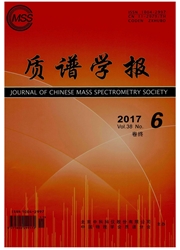

 中文摘要:
中文摘要:
牙齿中微量元素sr的含量和^87Sr/^86Sr比值可提供居民生活地域、饮食习惯以及口腔健康信息,广泛运用于口腔医学、科技考古、法医鉴定、占生态学等领域。对陕南地区居民健康齿和龋齿中Sr含量和^87Sr/^86Sr比值进行测定,结果表明,龋齿中Sr含量在79.70~85.80μg/g之间,而健康齿中Sr含量在128.00~156.77μg/g之间,龋齿中Sr含量明显低于健康齿;但^87Sr/^86Sr比值却在较小的范围内波动,波动范围为0.710935~0.71l037,同时该变化范围在当地饮用水、岩石和土壤的^87Sr/^86Sr比值区间内。健康齿和龋齿中Sr含量和^87Sr/^86Sr比值的结果,不仅为人类利用微量元素Sr预防龋病的发生提供理论依据,也可为拓展牙齿^87Sr/^86Sr古环境意义提供现代人牙齿实验依据。
 英文摘要:
英文摘要:
Strontium (Sr) concentration and 87 Sr/86Sr isotopic ratio in tooth can provide in- formation on the environment, dietary habits and oral health of individuals. These measures are widely applied in multiple disciplines, such as stomatology, archaeology, medicolegal appraisement and paleoecology. Sr concentration and 87Sr/86 Sr isotope ratio in healthy and carious teeth of individuals in the southern Shanxi province were determined. The results demonstrated that Sr contentration in human carious teeth was between 79. 70 μg/g and85.80 μg/g, but the Sr contentration in healthy teeth was between 128.00μg/g and 156.77 μg/g. A significantly lower Sr contentration is found in carious teeth than in healthy teeth. The 87 Sr/86 Sr isotope ratio data indicated that the 87 Sr/SG Sr ratio in healthy and carious teeth of individuals of varying ages and genders ranges between 0. 710 935 and 0. 711 037, which falls into the range of the 87Sr/86Sr found in the local, naturally occurring water, rocks and soils. The experimental data from this study can further confirm the relationship between Sr and dental caries, and can provide an experimental basis using modern human teeth to apply Sr isotope paleo-environmental significance.
 同期刊论文项目
同期刊论文项目
 同项目期刊论文
同项目期刊论文
 Accurate and Precise Determination of Boron Isotopic Ratios at Low Concentration by Positive Thermal
Accurate and Precise Determination of Boron Isotopic Ratios at Low Concentration by Positive Thermal 期刊信息
期刊信息
